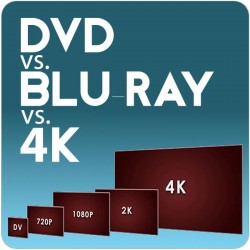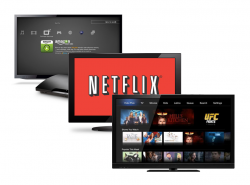So what did you buy this Black Friday/Cyber Monday? I got myself a nice new 27″ Dell monitor, decided the time was right to upgrade my el cheapo Dell 24″ that I got in 2009 (cheap in price, but not in quality, at least for a multimedia monitor). In previous years I might have had a peek at Amazon for the Black Friday Blu-ray deals, but I didn’t even bother this year, since it will take me approximately 19.654 months to finish watching the content I already have in my Netflix queue (assuming I don’t add more to it, which I definitely will).
On with the news.
![]()
So did it happen, or didn’t it? SoundCloud removed a completely silent track for copyright abuse, according to the author of the track, DJ Detweiler. The remix was John Cage’s 4’33, a track which was infamous for its complete silence (and that’s the joke), and SoundCloud’s removal would shame the audio sharing site’s copyright policing. Or did it?
According to SoundCloud, the track removed did indeed contain copyrighted content, a Justin Bieber song to be precise (which to be fair, would still be a valid remix of 4’33, since I’m sure the Bieber song did contain moments of silence). In making a statement on the issue of copyright, it appears DJ Detweiler has not only trolled SoundCloud, but everyone else as well.
Still, it helped to highlight the issue of remixes, and whether there should be copyright protection, or exemption, for them. If taking someone else’s work and putting your own creative spin on it to produce something that’s differentiated enough from the original, and if it’s done on a non profit basis, should it be allowed? There are arguments for not allowing it on commercial grounds, but equally, there are arguments for it on creative grounds, especially if copyright’s real job is to protect creativity and fuel innovation.
Moving on to perhaps a slightly less ambiguous issue involving copyright, it appears ripped 4K content from Amazon and Netflix are appearing on file sharing sites. Previously thought to be impossible, due to the yet uncracked HDCP 2.2 copy protected scheme, the availability of high quality 4K downloads of shows like Netflix’s ‘Jessica Jones’ and Amazon’s ‘The Man in the High Castle’, among others, seems to suggest a loophole has been found.
The fact that Amazon’s own Fire TV uses an older version of HDCP, and also the introduction of a new Roku device capable of streaming 4K and possibly having a weaker version of copy protection protocol, may be clues as to how these 4K streams ended up being pirated.
As with new video or disc formats, their out-of-reach-ness will protect it from mass piracy for a while. Not everyone has the hardware to download and play 4K movies, and many won’t bother with a 10GB download unless they have a fiber connection or something. Plus, Amazon and Netflix’s low entry costs makes the economy of 4K piracy somewhat less obvious of an advantage.
One thing that doesn’t seem to have an advantage at all is the endless filing of DMCA requests with Google – now up to an astounding 1,500 per minute. To put that into context, in the time it took me to search for synonyms for the term ‘useless’ (albeit not at my peak Google-fu powers), Google has received and processed 500 requests.
I fully expect this number to go much higher the next time I run out of news and so have to resort to writing an article about Google’s DMCA business. The number of piracy URLs on the Internet (and thus being indexed by Google) will, of course, rise at a faster rate.
Ineffective; meaningless; futile; counterproductive.
——
That’s pretty much it for news this week. There’s more streaming stuff, including what’s new on Netflix, Hulu in December, on Streambly. See you next week.














